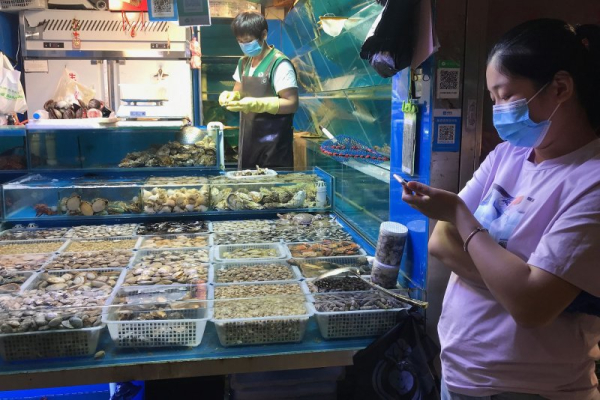
A shellfish vendor waits for customers at their stall in a popular food market, used by top international hotels and restaurants, in Beijing on July 16, 2020. Russia joined China on Monday in banning Japanese seafood imports. File Photo by Stephen Shaver/UPI | License Photo
Russia on Monday joined China in restricting Japanese seafood imports in connection with Japan’s decision to release treated radioactive water from the damaged Fukushima nuclear power plant.
The Russian Federal Service for Veterinary and Phytosanitary Surveillance, or Rosselkhoznadzor, called the decision a “precautionary measure” over concerns raised by China and about possible contamination of the seafood because of the water release. Advertisement
Rosselkhoznadzor said the restrictions would stay in place until Tokyo provides Moscow with “comprehensive information” confirming the safety of Japanese fish and seafood products.
The Japanese government held a video conference with Rosselkhoznadzor earlier in October to detail its methods for safety inspection and testing for radioactive substances including tritium, but it was not enough for agency to issue its order on Monday.
Japan’s Foreign Ministry said it “strongly demands” Russia remove the restriction, which it described as “extremely regretful” and lacking scientific basis.
The Fukushima Daiichi nuclear power plant was damaged by a massive earthquake and tsunami in 2011. Japan started discharging treated water from the plant in August following the International Atomic Energy Agency’s determination a month earlier that its treatment plans followed global safety standards. Advertisement
China almost immediately imposed a blanket ban on Japanese seafood with the first round is discharged. A second round of water discharge started in early October.
Japan had exported some 118 tons of seafood to Russia this year as of Sept. 22, according to Russian officials.